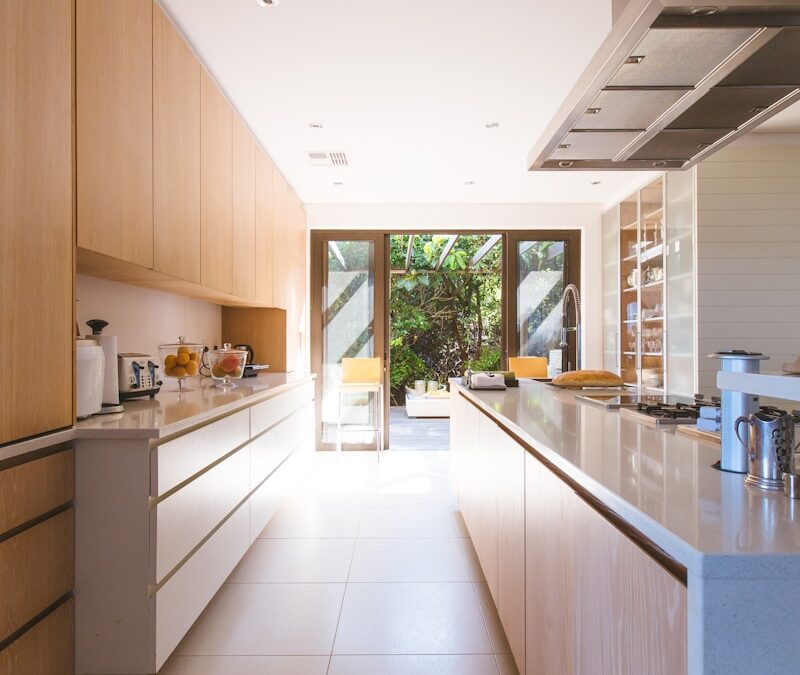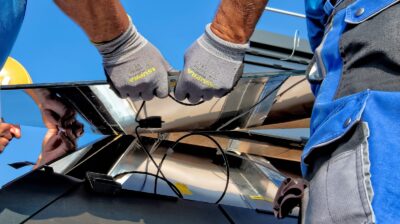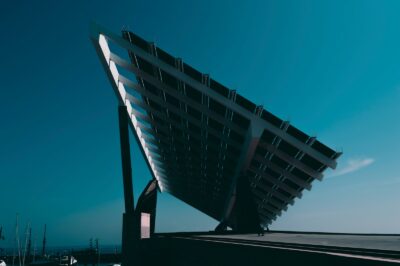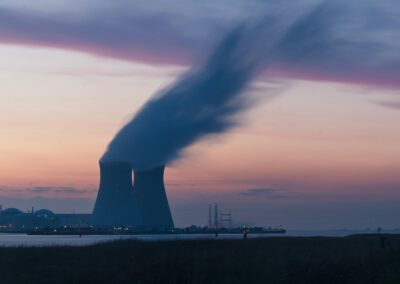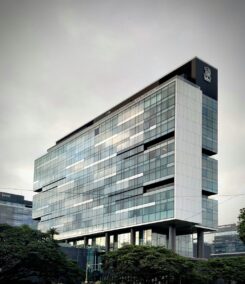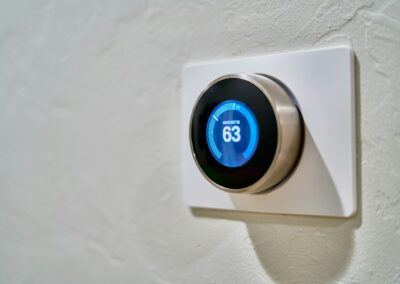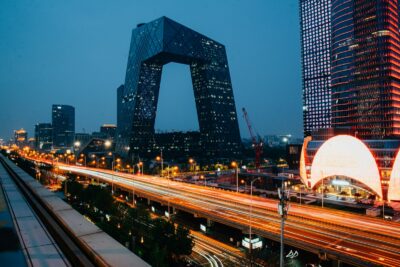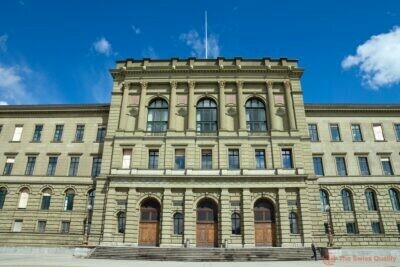The Role of Smart Home Technologies in Modern Energy Management
Introduction to Smart Home Energy Solutions
The integration of smart home technologies in energy management is transforming how we optimize energy usage and reduce utility costs. As cities like Riyadh and Dubai continue to embrace modern technology, the adoption of intelligent systems in residential settings has become a critical component of sustainable urban development. These technologies leverage artificial intelligence (AI) and the Internet of Things (IoT) to create more efficient, cost-effective, and environmentally friendly homes.
Smart home energy solutions encompass a range of devices and systems designed to monitor, control, and optimize energy consumption. From smart thermostats and lighting systems to advanced energy management platforms, these technologies provide homeowners with unprecedented control over their energy use. This capability is especially important in regions like Saudi Arabia and the UAE, where energy efficiency is a top priority due to the hot climate and high energy demands.
The benefits of smart home energy management are multifaceted. Not only do these technologies help reduce utility bills, but they also contribute to the overall sustainability goals of urban developments. By minimizing energy waste and promoting efficient usage, smart home technologies play a vital role in the transition toward greener, more sustainable cities.
Smart Thermostats and Climate Control
Smart thermostats are among the most effective tools for managing home energy consumption. These devices use AI to learn homeowners’ schedules and preferences, automatically adjusting heating and cooling settings to optimize comfort and efficiency. By ensuring that energy is used only when and where it is needed, smart thermostats significantly reduce energy waste and lower utility costs.
For example, a smart thermostat can detect when a home is empty and adjust the temperature settings accordingly, conserving energy until the residents return. It can also pre-cool or pre-heat a home based on anticipated occupancy, providing a comfortable environment without unnecessary energy expenditure. This level of automation not only enhances convenience but also promotes energy savings.
In Dubai, luxury residential developments are increasingly incorporating smart thermostats as a standard feature, reflecting the city’s commitment to sustainable living. Similarly, in Riyadh, new housing projects are embracing smart climate control technologies to improve energy efficiency and reduce the carbon footprint of residential buildings. These initiatives demonstrate how smart home technologies can support broader environmental goals in the region.
Intelligent Lighting Systems
Intelligent lighting systems are another key component of smart home energy management. These systems use sensors, timers, and AI to control lighting based on occupancy, time of day, and natural light availability. By automating lighting control, smart systems ensure that lights are used efficiently, reducing energy consumption and utility costs.
Smart lighting systems can adjust brightness levels and color temperatures to match the time of day and user preferences, enhancing both comfort and energy efficiency. For instance, lights can be dimmed or turned off when a room is unoccupied, and brightness can be adjusted to take advantage of natural daylight. These features help create a more sustainable and cost-effective lighting environment.
In Saudi Arabia, smart lighting solutions are being integrated into urban development projects to promote energy conservation. The Kingdom’s Vision 2030 initiative emphasizes the importance of sustainable practices, and intelligent lighting systems are a critical component of this strategy. In the UAE, developments like the Sustainable City showcase the benefits of smart lighting in creating eco-friendly and energy-efficient living spaces.
Advanced Energy Management Platforms
Comprehensive Energy Monitoring and Control
Advanced energy management platforms provide homeowners with comprehensive tools to monitor and control their energy usage. These platforms integrate data from various smart devices and systems, offering real-time insights into energy consumption patterns. Homeowners can access detailed reports and analytics, enabling them to make informed decisions about their energy use.
Energy management platforms can identify inefficiencies and suggest adjustments to optimize energy consumption. For example, they can highlight areas where energy is being wasted, such as appliances left on standby or inefficient HVAC systems. By addressing these issues, homeowners can reduce their energy bills and improve the overall efficiency of their homes.
In Dubai, smart home platforms are being utilized to create connected and energy-efficient communities. These platforms enable residents to manage their energy use more effectively, contributing to the city’s sustainability goals. In Riyadh, similar technologies are being implemented to support the development of smart, sustainable urban environments, aligning with the Kingdom’s broader vision for environmental stewardship.
Integration with Renewable Energy Sources
One of the most exciting aspects of smart home energy management is the integration with renewable energy sources. Solar panels, wind turbines, and other renewable systems can be seamlessly integrated with smart home technologies, maximizing the use of clean energy and reducing reliance on traditional power grids.
Smart energy management systems can optimize the use of renewable energy by storing excess power generated during peak production times and distributing it during periods of high demand. This not only reduces utility costs but also minimizes the environmental impact of energy consumption. Additionally, these systems can provide real-time data on energy production and consumption, helping homeowners understand and manage their renewable energy use more effectively.
In Saudi Arabia, projects like NEOM are pioneering the use of renewable energy in smart homes, aiming to create a city powered entirely by clean energy. The UAE’s commitment to sustainable development is reflected in initiatives like the Dubai Clean Energy Strategy 2050, which promotes the integration of renewable energy in residential developments. These efforts highlight the potential of smart home technologies to support a sustainable and energy-efficient future.
Enhancing Quality of Life and Sustainability
The adoption of smart home technologies in energy management not only reduces utility costs but also enhances the quality of life for residents. By providing greater control over home environments, these technologies create more comfortable and convenient living spaces. Automated systems reduce the need for manual adjustments, allowing residents to focus on more important aspects of their lives.
Furthermore, smart home technologies contribute to the broader sustainability goals of urban developments. By promoting energy efficiency and reducing waste, these technologies help cities like Riyadh and Dubai achieve their environmental objectives. The integration of smart technologies in residential settings is a testament to the region’s commitment to innovation and sustainability.
As the demand for smart and sustainable homes continues to grow, the successful implementation of these technologies will play a crucial role in shaping the future of urban development. By leveraging the potential of AI, IoT, and renewable energy, smart home technologies offer a pathway to a more efficient, cost-effective, and environmentally friendly future.
Conclusion
In conclusion, the integration of smart home technologies in energy management is revolutionizing the way we optimize energy usage and reduce utility costs. Cities like Riyadh and Dubai are leading the way in adopting these innovations, creating modern, efficient, and sustainable living spaces. By embracing the potential of smart technologies, homeowners can enjoy enhanced comfort, convenience, and energy savings, while contributing to broader environmental goals. The future of urban development lies in the successful implementation of these intelligent systems, paving the way for a more sustainable and energy-efficient world.
—
#SmartHomeTechnologies #EnergyManagement #HomeAutomation #UtilityCostReduction #ModernTechnology #UAEInnovation #SaudiArabiaUrbanProjects #LeadershipInSustainability

